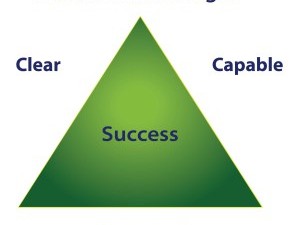SNAP! Goes the Rubber Band
Have you ever been on a diet or started an exercise program? Everything is
going great—you start losing weight, you feel yourself getting fitter. Then, you have a “day off”. Maybe it’s a big night out or you just take a break from the routine. You think, no problem, I’ll get back to it tomorrow. The next day arrives, and something else comes up, and before you know it you’re back where you started. Sound familiar? This is known as the Rubber Band Principle.
Behaviour changes, like eating differently or doing more exercise, that you think are “locked in” can snap back to baseline as quickly and as surely as a stretched rubber band will snap back once you let go. And no matter how long you stretch that rubber band (providing you keep it oiled), it will always snap back.
This principle also applies to building and sustaining a sales and service culture. Everyone operates at a certain comfort level. It’s a band of comfort, emotionally and with respect to skills. When you ask people to step out of that skill level and start doing things more frequently, better or differently than what they’re used to, it’s a stretch, it hurts. The mistake is believing, after a few weeks of change, that they’re over the hill now in a positive way, that it will last. The moment you turn your back, behavior will snap back to the comfort level. It may take a week or two, but it will regress. Be aware of this and manage to it. Keep the rubber band stretched.
Your thoughts?
Gerry Dwarshuis is a Senior Results Consultant for Cohen Brown Management Group, Inc.
0 Comments
Leave a reply
You must be logged in to post a comment.






